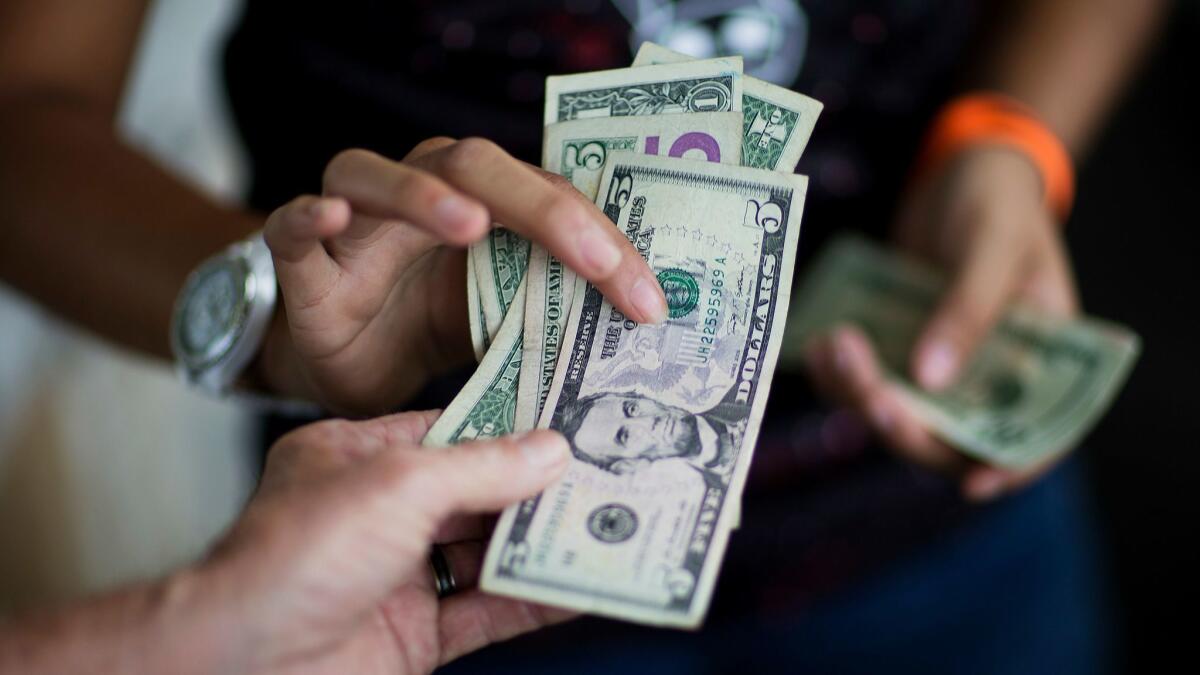For teens, a higher minimum wage could be an effective form of birth control

- Share via
It doesn’t work to stop pregnancy like the birth control pill or an intrauterine device. But for teenage girls flipping burgers, sorting widgets or working retail, a bit more bling in the paycheck appears to reduce the likelihood of becoming a mother before her time.
In an analysis that looked at teen birth rates and changes in minimum wages across the country between 2003 and 2014, an Indiana University researcher concluded that a dollar-an-hour raise in the minimum wage reduces adolescent birthrates by roughly 2%.
In 2014, mothers between 16 and 19 years of age gave birth to 249,078 babies. Compared with infants born to older mothers, those babies are more likely to contend with health problems, to spend time in the foster-care system, and to grow up in poverty. A hike of a single dollar an hour would prevent about 5,000 of those births, reckoned Lindsay Rose Bullinger in an article published in the American Journal of Public Health.
Declines in teen birth rates were steepest among young white women and Latinas, Bullinger found, and were not evident among African American teens, who were less likely than white and Latina teens to be employed.
The analysis comes as teen births have fallen to historic lows, driven by greater access to effective contraception, reduced sexual activity among teens, and an uncertain economy. After the economic downturn that began in 2008, a Pew Research Center analysis found that birth rates for teens declined far more steeply than they did for women overall.
In drawing the link between the minimum wage and teen birth rates, the new analysis took the impact of the economy into account to find that higher pay itself may influence a young woman’s sexual and reproductive decisions.
Minimum wage hikes may be on a slow march in cities and counties across the nation. But the fate of efforts to boost the federal government’s $7.25-per-hour pay floor now rests with Donald Trump’s new administration, and with his nominee for Labor secretary, Andrew Puzder, a fast-food magnate. Puzder has said he believes raising the minimum wage depresses job creation, but has also said he may support increases smaller than California’s hike to $15.
While minimum wage increases’ impact on employment continues to be debated, research has linked the raises to other health effects, including decreases in body-mass index, reduced risk of child maltreatment, improvements in birth outcomes and decreases in premature mortality.
Follow me on Twitter @LATMelissaHealy and “like” Los Angeles Times Science & Health on Facebook.
MORE IN SCIENCE
Scientists solve a whale of a mystery: Why orcas have menopause
Experts have only a hazy idea of marijuana’s myriad health effects, and federal laws are to blame
Vowel sounds made by baboons show that the roots of human speech may go back 25 million years




